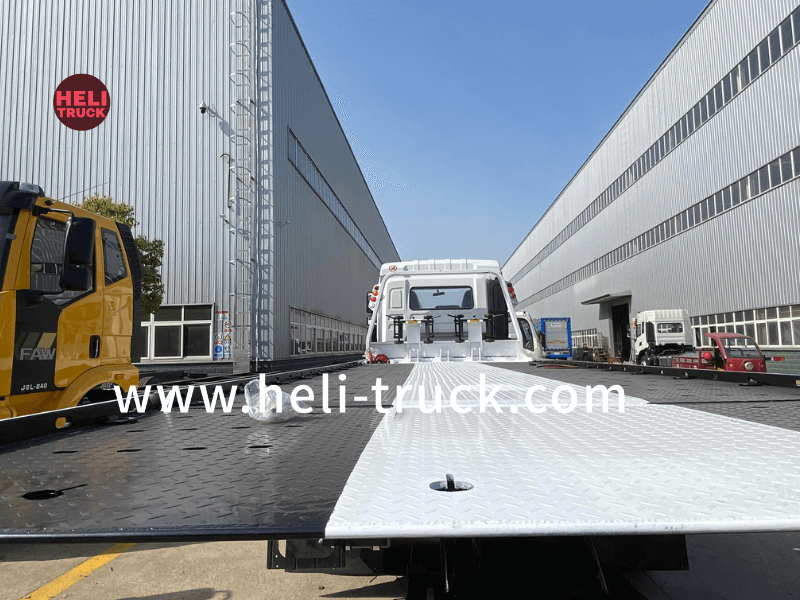The Weighty Matter of Garbage Compactor Trucks A Comprehensive Guide to Understanding and Managing Weight Issues

Introduction
Garbage compactor trucks play a crucial role in waste management systems worldwide. These specialized vehicles are designed to collect, compact, and transport solid waste efficiently and hygienically. One of the key factors that impact the performance and operation of garbage compactor trucks is their weight. Understanding the weight considerations associated with these vehicles is essential for ensuring their safe and effective operation. In this comprehensive guide, we will delve into the various aspects of garbage compactor truck weight, including its significance, factors influencing weight, weight management strategies, and the implications of weight-related issues.
Importance of Garbage Compactor Truck Weight
The weight of a garbage compactor truck plays a critical role in determining its performance, safety, and efficiency. An optimal weight ensures that the vehicle can carry the required amount of waste without exceeding its capacity or compromising its stability. Overloading a garbage compactor truck can lead to a range of issues, including reduced fuel efficiency, increased wear and tear on components, decreased braking performance, and potential safety hazards on the road. Conversely, operating a truck that is underloaded may result in inefficient waste collection and disposal processes, leading to unnecessary costs and resource wastage.
Factors Influencing Garbage Compactor Truck Weight
Several factors influence the weight of a garbage compactor truck, including:
1. Vehicle Design: The design and specifications of the garbage compactor truck, including its size, capacity, and construction materials, play a significant role in determining its weight-bearing capacity.
2. Waste Density: The density of the waste being collected can vary depending on the type of material (e.g., household waste, industrial waste, construction debris) and how it is compacted. Higher-density waste requires more force to compress, potentially increasing the weight load on the truck.
3. Compaction Mechanism: The efficiency and power of the compaction mechanism in the truck impact how much waste can be compressed into the storage compartment. A more powerful compactor may enable higher compaction ratios but also add weight to the vehicle.
4. Chassis and Suspension: The structural integrity of the chassis and the quality of the suspension system are crucial in supporting the weight of the garbage compactor truck and ensuring stable and safe operation, especially over uneven terrain.
5. Legal Regulations: Various jurisdictions have specific regulations and weight limits for commercial vehicles, including garbage trucks. Adhering to these regulations is essential to avoid fines, penalties, and legal consequences.
Weight Management Strategies for Garbage Compactor Trucks
To effectively manage the weight of garbage compactor trucks and optimize their performance, operators and fleet managers can implement the following strategies:
1. Regular Maintenance: Conducting routine inspections and maintenance checks on the vehicle's components, including the compaction mechanism, hydraulic system, chassis, and suspension, can help identify and address issues that may affect weight capacity.
2. Monitoring Load Limits: Establishing and adhering to load limits based on the truck's design specifications and legal regulations is crucial for preventing overloading and ensuring safe operation.

3. Efficient Waste Compaction: Proper training of operators on how to efficiently compact waste using the truck's compaction mechanism can help maximize the amount of waste that can be carried without exceeding weight limits.
4. Route Planning: Optimizing collection routes to minimize travel distance and avoid unnecessary stops can help reduce fuel consumption and optimize the weight distribution of waste in the truck.
5. Weight Distribution: Ensuring that waste is evenly distributed and properly loaded within the storage compartment of the truck can help maintain stability and prevent imbalances that may affect handling and safety.
Implications of Weight-Related Issues in Garbage Compactor Trucks
Failure to address weight-related issues in garbage compactor trucks can have serious consequences, including:
1. water tank truck : Overloaded or improperly loaded trucks are at greater risk of accidents, rollovers, and mechanical failures that can endanger the driver, other road users, and pedestrians.
2. Environmental Impact: Excessive weight and inefficient waste collection practices can result in higher fuel consumption, increased greenhouse gas emissions, and unnecessary strain on natural resources.
3. Operational Costs: Weight-related issues can lead to increased maintenance costs, premature wear and tear on components, higher fuel consumption, and potential fines for non-compliance with regulations, all of which can impact the overall operational efficiency and profitability of waste management operations.
Conclusion
The weight of garbage compactor trucks is a critical factor that influences their performance, safety, and efficiency in waste management operations. By understanding the significance of weight considerations, identifying the factors that influence weight, implementing effective weight management strategies, and addressing weight-related issues proactively, operators and fleet managers can optimize the operation of garbage compactor trucks and ensure their long-term reliability and sustainability. Prioritizing proper weight management not only enhances the safety and efficiency of waste collection and disposal processes but also contributes to environmental conservation and cost savings in the long run.
